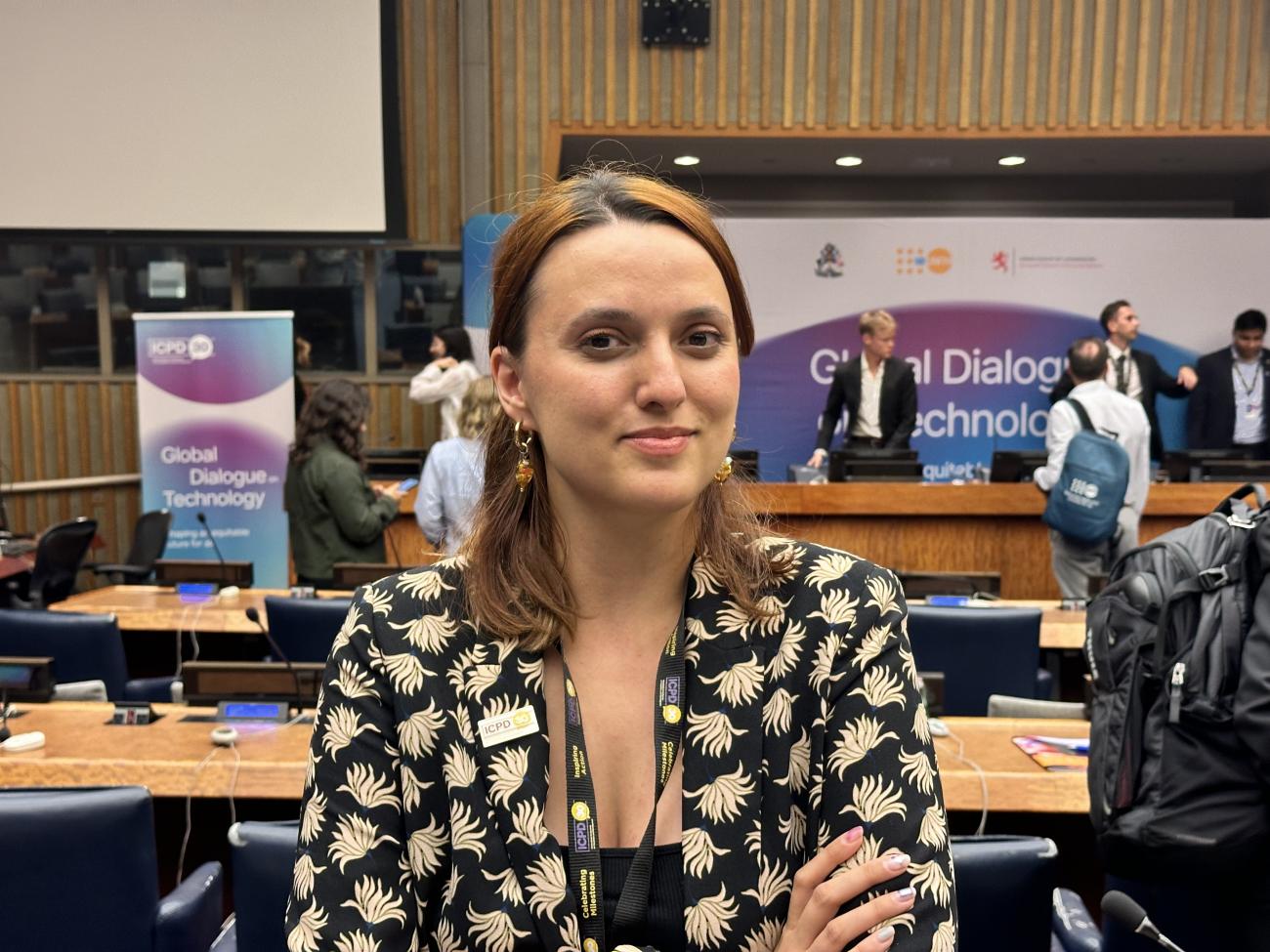Advocacy is about the small steps for a creating a better world

Advocacy is not just about big actions—it is about the small, consistent steps we take together to create a world that’s a little better than the one we inherit
Sara Milenkovska is a feminist activist, researcher and co-founder of the Stella Network, a civil society organization advocating for gender equality in North Macedonia. With a background in gender studies, political science and strategic communications, her research focuses on systemic inequality, exploring intersectionality, countering anti-gender movements, and amplifying the voices of marginalized groups, particularly in the face of (digital) gender-based violence. Sara’s approach, as both a scholar and a practitioner, is based on praxis, leveraging feminist principles for tangible political advocacy and community empowerment. At the Stella Network, she leads initiatives that provide mentorship and assistance to women and girls, recognizing the transformative power of solidarity networks. Sara’s varied work demonstrates the potential of activism, academia, and community engagement to drive positive social change.
Can you describe your professional journey and what motivated you to combine research with advocacy?
My professional career and activism have always been deeply interconnected. While building my experience and skills, I held various jobs that, despite their differences, each contributed uniquely to my current path. I began as a journalist for a youth educational programme, and later worked as a monitoring and evaluation assistant for an EU-focused international development programme in North Macedonia. However, my most important role has been in co-founding and growing the Stella Network, which has been at the forefront of mentoring women and girls since 2018. This dual focus on systemic and grassroots work deepened my appreciation for intersectional advocacy to address inequalities.
The turning point for me was receiving a book on the Rwandan Genocide at 14, which shaped my understanding of the importance of data in advocacy. This early experience, coupled with my feminist upbringing and Bosnian heritage, solidified my belief that personal narratives, when supported by data, can drive meaningful change. The integration of evidence-based research with advocacy is crucial for developing survivor-centered approaches and sustainable peacebuilding.
What do you see as the main challenges to attaining gender equality in North Macedonia?
The challenges in North Macedonia mirror broader global issues. Some of the main obstacles include a culture that normalizes violence against women, institutionalized misogyny, and growing anti-gender movements. Though there are optimistic forecasts, such as a UN Women research indicating that gender equality may be attained in 57 years, these forecasts frequently assume an insufficiently slow rate of advancement. While one of the core tenets of feminism is to remain hopeful—and I am hopeful about the future, fueled by solidarity—I am also deeply concerned by the present realities. However, it is increasingly clear that we cannot afford to delay action; there is a growing unity in the fight for gender equality and justice.
As gender equality is increasingly erased from media narratives and policy documents, it is imperative to create more effective resistance strategies and build coalitions from an intersectional perspective. Gender equality is not solely a women’s issue, it intersects with all aspects of society—class, race, citizenship, demographics, sexual orientation, and more. Another significant challenge is the need for a sustainable approach to supporting feminist organizations at the national and regional levels, including establishing stronger coalitions and ensuring access to feminist funding. Link: http://unwo.men/ZcFt50T2UrN


